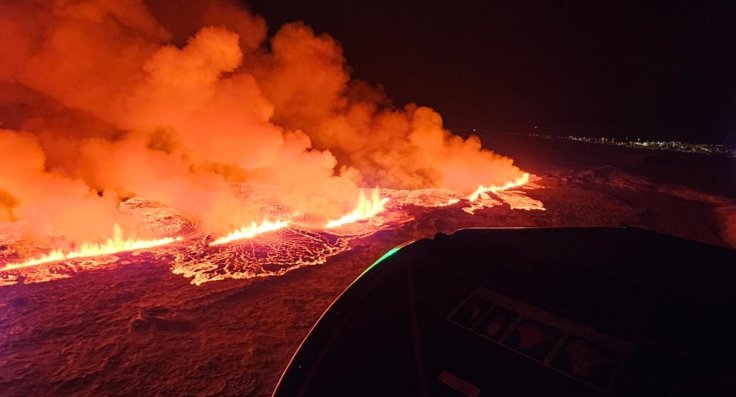Southwest Iceland's volcano erupted on Thursday morning, marking its second eruption this year, according to media reports. The event commenced at 6 am local time, northeast of Sylingarfell mountain, with magma intrusion north of Grindavik beginning half an hour earlier following an earthquake, as reported by national broadcaster RUV.
The eruption, close to the one that began on December 18, 2023, spans a 3 km fissure, with lava flowing westward. While there's no immediate threat to Grindavik, the Blue Lagoon, a renowned geothermal spa and Iceland's popular attraction, evacuated its premises when the eruption commenced.

Helga Arnadottir, the director of sales, operations, and services at the Blue Lagoon, confirmed that guests were relocated to nearby towns of Keflavik and Reykjavik. Consequently, the Blue Lagoon remained closed on Thursday.
Despite Grindavik's evacuation on November 10, 2023, Icelandic experts assured RUV of no imminent peril to the fishing town this time. Nevertheless, the eruption has disrupted the availability of hot water for heating in the Reykjanes area.
Reportedly, the eruption damaged a hot water pipe in southwestern Iceland's Reykjanes area, impacting the region's heating system, which heavily relies on hot water. The consequence rippled to Keflavik airport, which ran out of hot water by Thursday afternoon, prompting adjustments in terminal temperature.

Halla Hrund Logadottir, head of Iceland's National Energy Authority, urged residents to conserve electricity and hot water, given the insufficient capacity of the electricity system for heating purposes. Logadottir emphasized the importance of preserving the remaining hot water reserves.
As a result of the hot water shortage, school activities and sports facilities across multiple Reykjanes municipalities will remain closed. The Icelandic Meteorological Office's latest update indicates a decrease in the eruption's intensity, with activity mainly concentrated in three locations along the volcanic fissure that opened on Thursday morning.









